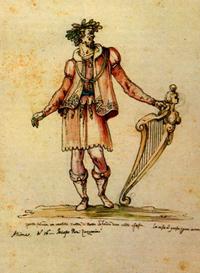Music was numbered by the ancients among the arts that are called liberal, that is, worthy of a free man, and among the Greeks its masters and discoverers, like those of almost all the other sciences, were always in great esteem. And by the best legislators it was decreed that it must be taught, not only as a lifelong delight but as useful to virtue, to those who were born to acquire perfection and human happiness, which is the object of the state. But in the course of time the Greeks lost the art of music and the other sciences as well, along with their dominion. The Romans had a knowledge of music, obtaining it from the Greeks, but they practiced chiefly that part appropriate to the theaters where tragedy and comedy were performed, without much prizing the part which is concerned with speculation; and being continually engaged in wars, they paid little attention even to the former part and thus easily forgot it. Later, after Italy had for a long period suffered great barbarian invasions, the light of every science was extinguished, and as if all men had been overcome by a heavy lethargy of ignorance, they lived without any desire for learning and took as little notice of music as of the western Indies. And they persisted in this blindness until first Gafurius and after him Glarean and later Zarlino [Renaissance music theorists] (truly the princes in this modern practice) began to investigate what music was and to seek to rescue it from the darkness in which it had been buried. That part which they understood and appreciated, they brought little by little to its present condition, but from what can be learned from countless passages in the ancient histories and in the poets and philosophers, it does not seem to any who are intelligent that they restored it to its ancient state, or that they attained to the true and perfect knowledge of it. This may have been owing to the rudeness of the times, the difficulty of the subject, and the scarcity of good interpreters. . . .
For this reason, . . . it has pleased me to publish some thoughts of mine on ancient music and that of our times, which until this day have been (in my opinion) little understood by any who have discussed them . . . . And now, since long continuous speaking, flowing on like a torrent, seems not to have the force and vigor in concluding sentences and arguments which dialogue has, I have judged it most to this purpose to treat my present discourses in that manner, and this I can easily believe to have been one of the potent causes that induced Plato to treat the subjects of divine philosophy in this way. I have accordingly chosen to discuss the subject the very illustrious Signor Giovanni Bardi, . . . and with him Signor Piero Strozzi, as being both most zealous for the true music and great lovers of such speculations as these and moreover qualified to sustain this or even a weightier argument.

